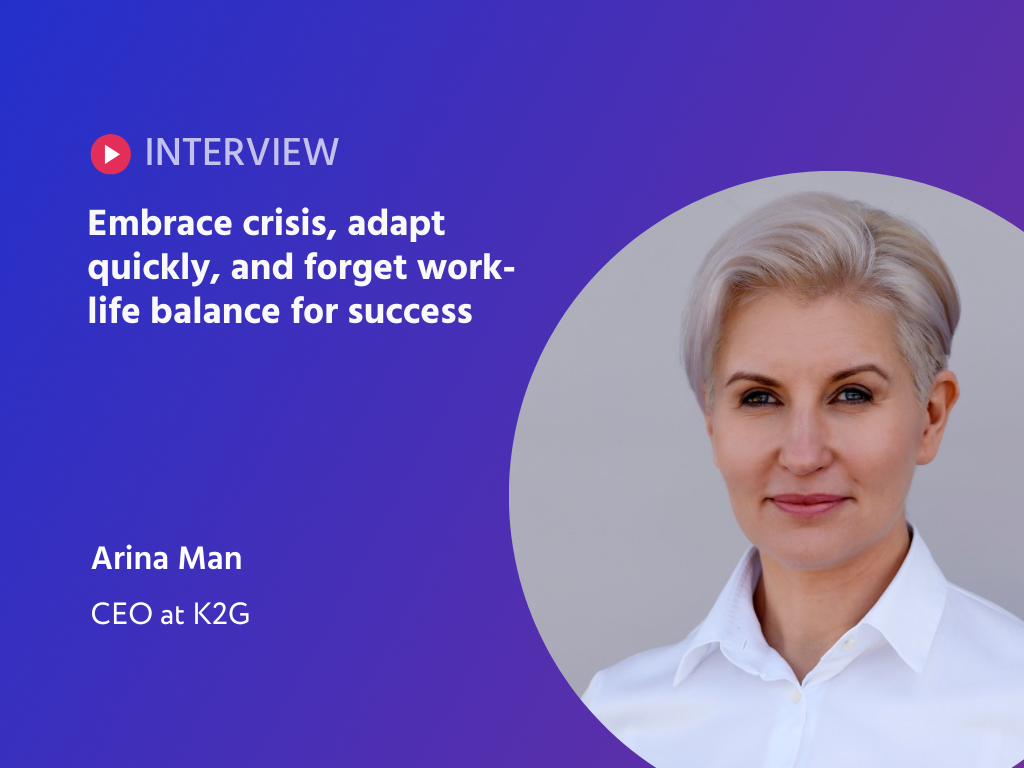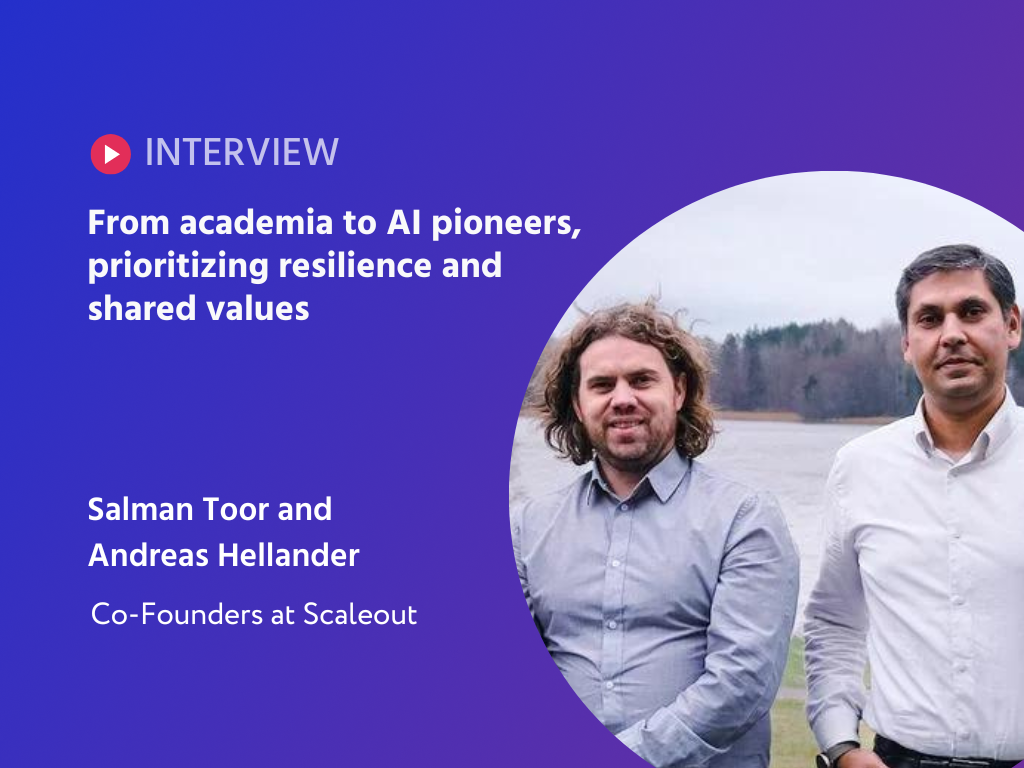Fincite is a financial advice platform that is bringing the modern advisor experience to the world of financial advice. While financial advisors are responsible for an array of tasks, Fincite's software aims to improve the advice experience for customers by incorporating new technology from modern brokers.
Fincite currently has 7,000 advisors on its platform across seven countries. The company began in Germany, with the Netherlands as its second-largest market, followed by Denmark, Norway, and Finland. The team made a big breakthrough last year, breaking into the US market, by focusing, for now, on New York and New Jersey.
Ralf Heim, Founder and Co-CEO at Fincite tells, while the US market is more case-by-case than Europe, the regulation is less stringent, which is advantageous for software companies that must comply with European regulations. He speaks about the disappointments of the advancements in Fintech, and the future.
Fincite had only made modest gains up until this year, but the addition of two large customers in 2022 has given the company a significant boost in the region. Come with me as we explore the Fincite Journey.…
Today's Tech Falls Short of Expectations
Ralf had expected the financial services industry to benefit greatly from technological developments, but, in fact, the movement's impact was slower in coming than he had anticipated. Ralf describes how he saw, from the point of view of a customer, how the early promises made by FinTech have yet to materialize.
The technology needed to model investments that were specifically suited to a client's financial needs and goals simply did not exist at the time. Instead, businesses are stuck with inefficient, non-integrated service models and procedures.
"You still have the issue that the bank only tells you to sell your current portfolio and doesn't take into account what you already have."
Seven years later, it's essentially the same, albeit with some digital upgrades from the original concept
Breaking Through Stagnation: Assessing Our Current State of Progress
“In 2020, we saw a significant shift towards cloud-based solutions, particularly in the financial sector where banks started implementing cloud-based products for their core processes of investment management and advice. This was a major breakthrough since, prior to 2018, most banks had yet to introduce such solutions.”
This acceleration in the adoption of cloud technology in large enterprise, it’s just the beginning
Ralf explains why it is evident that companies, especially those operating in the SaaS market, will need to adopt this trend in order to maintain their position in the industry.
From Juggling to Plate-Spinning: Mastering Multitasking as a CEO
Ralf tells us how he looks ahead, and therefore, plans ahead of time - vital for surviving in the tech industry, using a famous psychologist professor's words to underpin his belief - "It's more important what you think about than what you think of it".
This means that focusing on the finer points of a problem may yield more favorable outcomes than you anticipate, but it also increases the risk that you'll lose sight of the bigger picture
Ralf explains that he is trying to juggle so many ‘business balls’ in the air that he sometimes loses sight of the smaller but more steady ones as he focuses on the larger picture. It really is a fine art of business.
However, he tells how challenges and the art of plate spinning and ball juggling is alleviated when you have a solid Co-founder with whom you can share the load of work with.
When two founders understand each other's strengths and weaknesses and can balance them out, it can be an unstoppable match
“A friend of mine and the founder of the highest-valued German startup I know of are a great example of how two people with very different work styles can complement one another. My co-CEO and I have strict job divisions in place. My co-CEO is in charge of internal communication and product development, while I deal with external stakeholders like customers, investors, and the media.”
“We were founded by three people with varied experiences and perspectives. Stefan handles the technical aspects of the project, such as its architecture and foundation. Friedhelm Schmitt comes from a financial and quantitative background, so he knows his way around the stock market. I consider myself more of a general technologist.”
At the beginning, the initial Fincite team structured the company into three units.
“I grew through them, built, and Stefan operated. As the team grew, we had to adopt more complex structures to accommodate more team members.”
It's important to keep things clear cut by making sure the right people are accountable for the right things
Leveling Up with Self-Belief: Unleashing Your Inner Athlete
Self-belief was never an issue, we always had a strong, sportsman-like mentality to win
"When we first had money from a job in our mid-20s, we thought about how to invest it. We saw robo-advisors popping up, but we realized they were only suitable for simple investments like ETFs, stocks, and bonds.”
“We believed that there would be more asset classes to invest in, and that algorithms would tell us how to adjust our investments automatically based on our personal financial situation.”
Initially, the Fincite team tried to build this algorithmic view into a digital platform but narrowed it down to financial planning and portfolio construction tools based on customer demand. After selling their algorithms as a back-end service to banks, they eventually moved towards an advice platform based on a hybrid model combining human advisors with online wealth management services.
Currently, their main focus is on expanding the advisor business, continuing to strive for simplicity with the right objectives and key results assigned to individuals.
We believe in the power of algorithms, but we also recognize the importance of human advisors in the financial advice industry
From Code to Connection: Understanding Why Human Advisors Remain Vital in Fintech
Ralf tells that, from a customer demand perspective, complex life decisions often require human advice and now the challenge is to make this advice affordable.
“Currently, advisors charge a fee for their services, either through monthly subscriptions or embedded in investments, but the cost is often so high that it becomes inaccessible for most people. Advisors typically require a minimum investment of around 200,000 euros to consider a client.”
Despite rapid advances in artificial intelligence, many customers still prefer to speak with real people when seeking customer support, as they trust real people more than AI-powered chatbots. Ralf tells how customers prefer the security of speaking with a real person they can trust when dealing with sensitive information or making important decisions.
“If advising one customer costs a bank around 7,000 euros, this is due to documentation duties, onboarding processes, portfolio management, and other related costs, the cost of advising a single customer can reach up to 10,000 euros. To make this process more efficient, digitalization and algorithms powered by technology can be used to report and analyze data, enabling customers to self-service and access human advice when needed.”
By implementing these technologies, the goal is to make the advisor's job more efficient, but not replace them
“Instead of a cumbersome onboarding process, advisors can simply access the digital platform, which shows all customer information and is fully prepared for the conversation. Advisors can then offer personalized advice based on customer needs, simulate different scenarios, and prepare for the next customer.”
With the help of technology, advisors can handle up to five times, or even ten times, the number of customers they can serve today
Resilience Amidst Adversity: The Story of a Ukrainian Tech Team
Ralf's tech team in Ukraine was confronted with an unexpected and difficult situation: war. As tensions rose, his team members were directly affected, leaving Ralf with the difficult task of ensuring their safety while also keeping in touch with customers. Ralf shares his experiences and the steps he took to navigate this unprecedented crisis in this account.
“We provided job security to our team and supported them emotionally as they dealt with the uncertainty and fear of war. We even reached out to friends in other parts of the world to gain different perspectives and insights into the War. We wanted to do everything we could to help our team.”
“Despite the turmoil, I was impressed by the strong mentality of our Ukrainian team. They remained committed and motivated, despite the challenging circumstances they faced. We are grateful for their dedication and hard work, and we continue to support them as best we can.”
The End of Fintech's Golden Age? Examining the Emerging Indicators of Slowdown
Fintech has for many years been rapidly evolving, but now it seems to have reached a stagnation point. Ralf tells how the Gartner Hype Cycle is a great tool for understanding this.
“Payment systems have already reached a high level of productivity, but there is still room for improvement in areas such as blockchain and payment integration, such as Stripe - a good example of a company that has been successful in subscription management and other payment-related services. However, one big challenge is the established infrastructure, which makes it harder to introduce new technologies and create significant value.”
Ralf highlights an interesting example in Germany where the country had a well-established fixed-line network structure, but the adoption of mobile technology was relatively slow, leading to certain areas experiencing inadequate network coverage.
“Similarly, in the payment infrastructure, the adoption rate for new technologies is lower if the existing system is efficient. This is also true for stock markets. In personal finance and wealth management, there will be continuous growth, but no significant jumps.”
AI is a complicated topic in the regulated investment world, but it can be a great addition to customer intelligence and back-office operations
“However, disruptive elements can arise unexpectedly, such as the success of new brokers like Trade Republic.”
Simplicity and convenience are crucial factors for successfully handling disruptive elements
“This has been seen in the success of platforms like brokers and financial advice apps. While fintech may not be as relevant to venture capitalists as it once was, it is still a rapidly growing field with potential for further development.”
“Unforeseen events and developments make it hard to say what the future holds for fintech.”




